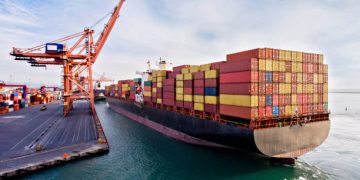TOKYO, April 1 (Reuters) – Nippon Yusen (NYK), Japan’s largest shipping line, has expressed concerns that U.S. tariffs could lead to higher costs for automobiles and consumer goods, potentially slowing cargo flows. The company’s president, Takaya Soga, discussed the potential impact in an interview on Monday, highlighting that although the tariffs may not directly affect consumers, the financial burden will eventually be passed to them, potentially reducing demand for goods and affecting cargo movements.
Soga acknowledged that the full impact on shipping and logistics companies would depend on the volume of actual cargo movement. While concerns remain, he noted that the situation could present opportunities, as seen during the COVID-19 pandemic when logistical disruptions tightened ship demand and increased freight rates. The company also sees potential business opportunities if China shifts its sourcing of raw materials outside the U.S.
In December, a surge in consumer goods shipments occurred as companies anticipated the impact of U.S. tariffs, though there has been no major shift in material flows since their implementation, according to Soga.
Additionally, the United States is planning to charge docking fees at U.S. ports for any ship part of a fleet with Chinese-built or Chinese-flagged vessels, which could lead to broader geopolitical trade implications. However, Soga stated that NYK owns less than 10% of its vessels from China and would continue to evaluate its future vessel orders based on the evolving policy landscape.
With ongoing disruptions in the Red Sea due to geopolitical tensions, Soga expects detours around the region to persist. He also mentioned that although container vessel congestion in the Panama Canal has largely been addressed, NYK is urging the Panama Canal Authority to prioritize liquefied natural gas (LNG) tanker traffic.
Regarding the company’s investments in offshore wind power projects, Soga indicated that plans in Japan may be delayed due to slower-than-expected market development, though international investments are expected to proceed on schedule.
#JapaneseShipping #USTariffs #CargoFlows #LogisticsChallenges #GlobalTrade















